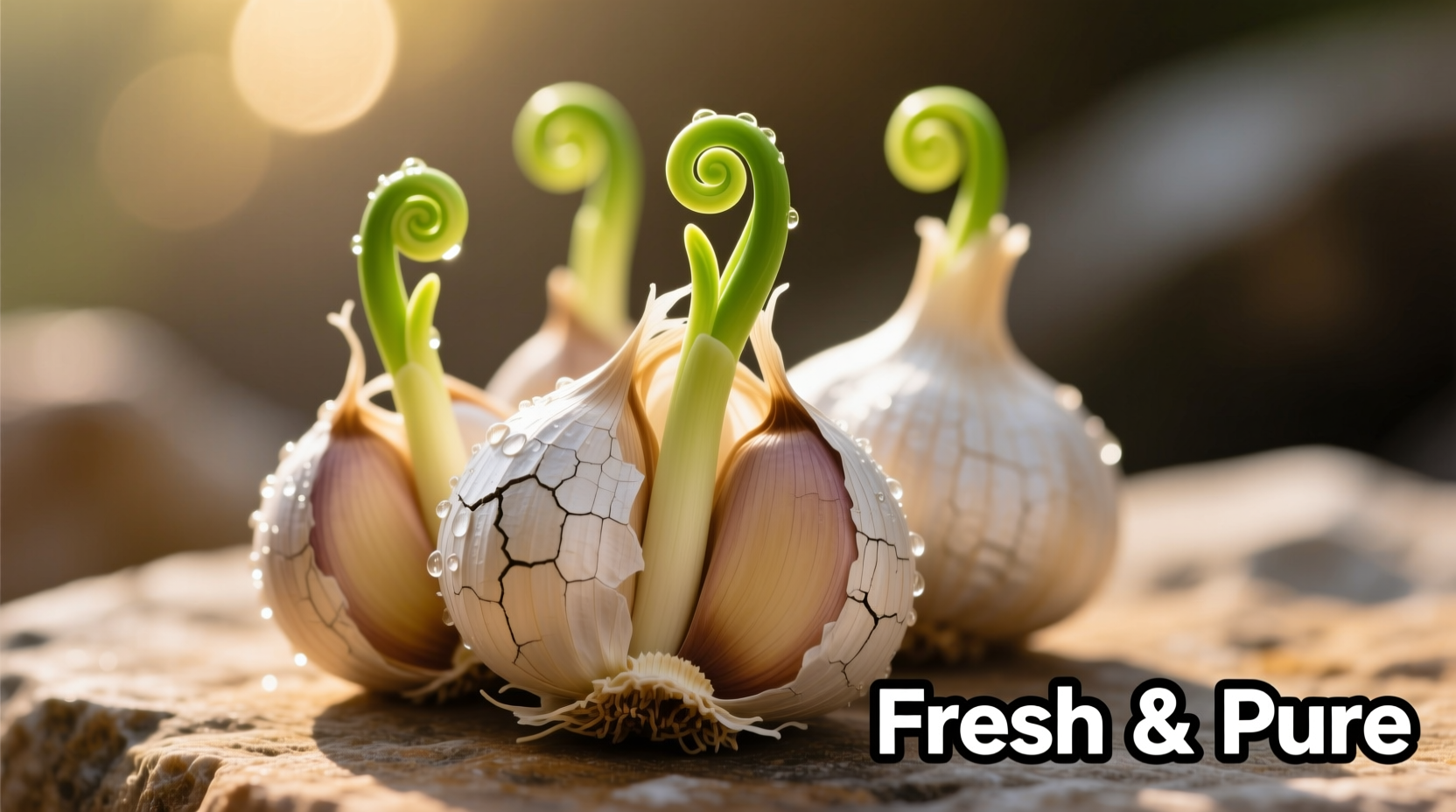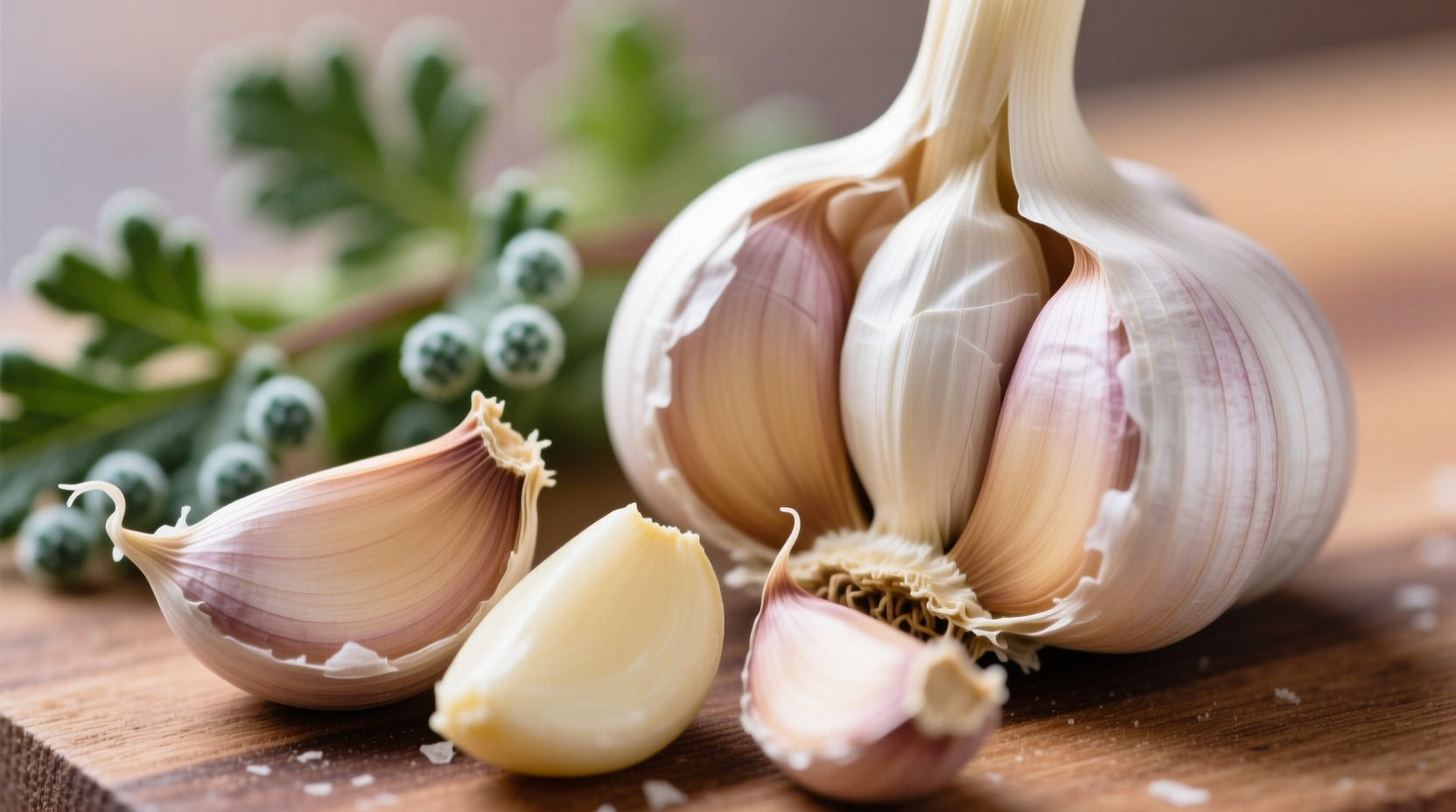For centuries, garlic has been hailed as a natural remedy for everything from infections to heart disease. When cold season hits, many turn to this pungent bulb hoping for relief. But what does actual scientific research say about garlic's effectiveness against the common cold? Let's separate culinary folklore from evidence-based facts.
The Science Behind Garlic's Potential Benefits
Garlic contains allicin, a sulfur compound formed when cloves are crushed or chopped. This bioactive component gives garlic its distinctive smell and has demonstrated antimicrobial properties in laboratory studies. Research published in the Journal of Nutrition confirms allicin can inhibit certain bacteria and viruses in controlled environments.
However, the human body processes allicin quickly. As the National Center for Complementary and Integrative Health (NCCIH) explains, garlic's active compounds break down rapidly after consumption, limiting their systemic effects. This biochemical reality significantly impacts garlic's potential therapeutic value.

What Research Actually Shows About Colds
A comprehensive 2014 Cochrane systematic review analyzed multiple clinical trials involving 1,736 participants. The findings revealed:
| Research Finding | Evidence Strength | Practical Implication |
|---|---|---|
| Modest reduction in cold incidence | Moderate (3+ quality studies) | Regular consumption might prevent 1 cold per year in some people |
| No effect on cold duration | Strong (consistent across studies) | Garlic doesn't shorten existing colds |
| No effect on symptom severity | Strong (multiple trials) | Garlic doesn't reduce cold symptom intensity |
| Preventive effect requires daily consumption | Moderate | Benefits only observed with consistent, long-term use |
Garlic Research Timeline: From Folk Remedy to Scientific Scrutiny
The journey of garlic from traditional remedy to scientific investigation reveals important context:
- Ancient Egypt (1500 BCE): Garlic documented in medical papyri for respiratory ailments
- World War II: Soviet soldiers used "Russian penicillin" (garlic) for wound treatment
- 1990s: First clinical trials examining garlic's antimicrobial properties
- 2001: Landmark study suggesting reduced cold incidence with aged garlic extract
- 2014: Cochrane review establishes current scientific consensus
- 2020s: Ongoing research into allicin stabilization for therapeutic applications
Practical Applications and Limitations
While garlic won't cure your cold, understanding its realistic benefits helps set proper expectations:
When Garlic Might Help
- As part of a long-term preventive strategy (daily consumption throughout cold season)
- When consumed in forms preserving allicin (freshly crushed, allowed to stand 10 minutes before cooking)
- As complementary support alongside proven prevention methods
When Garlic Won't Help
- Once cold symptoms have appeared (no curative effect)
- As a replacement for evidence-based treatments
- When used inconsistently or in insufficient quantities
- For high-risk populations like immunocompromised individuals
The Centers for Disease Control and Prevention (CDC) emphasizes that hand hygiene remains the most effective cold prevention method. While garlic may offer marginal additional protection, it shouldn't replace proven strategies like regular handwashing and avoiding face touching.
Evidence-Based Cold Prevention Strategies That Actually Work
Instead of relying on unproven remedies, focus on these scientifically supported approaches:
- Vitamin D supplementation: Particularly beneficial for those with deficiency (per BMJ research)
- Zinc lozenges: May reduce cold duration when taken within 24 hours of symptoms (Cochrane review)
- Adequate sleep: 7-8 hours nightly supports optimal immune function
- Regular handwashing: The single most effective prevention method according to CDC
Remember that the common cold is caused by over 200 different viruses, primarily rhinoviruses. No single remedy works against all strains, which explains why a universal cold cure remains elusive despite decades of research.











 浙公网安备
33010002000092号
浙公网安备
33010002000092号 浙B2-20120091-4
浙B2-20120091-4